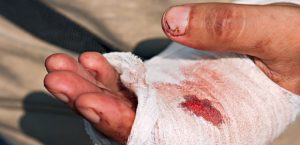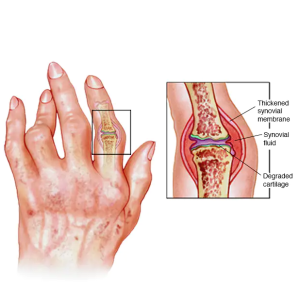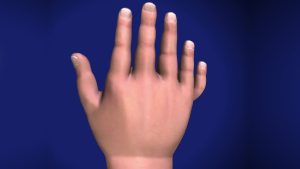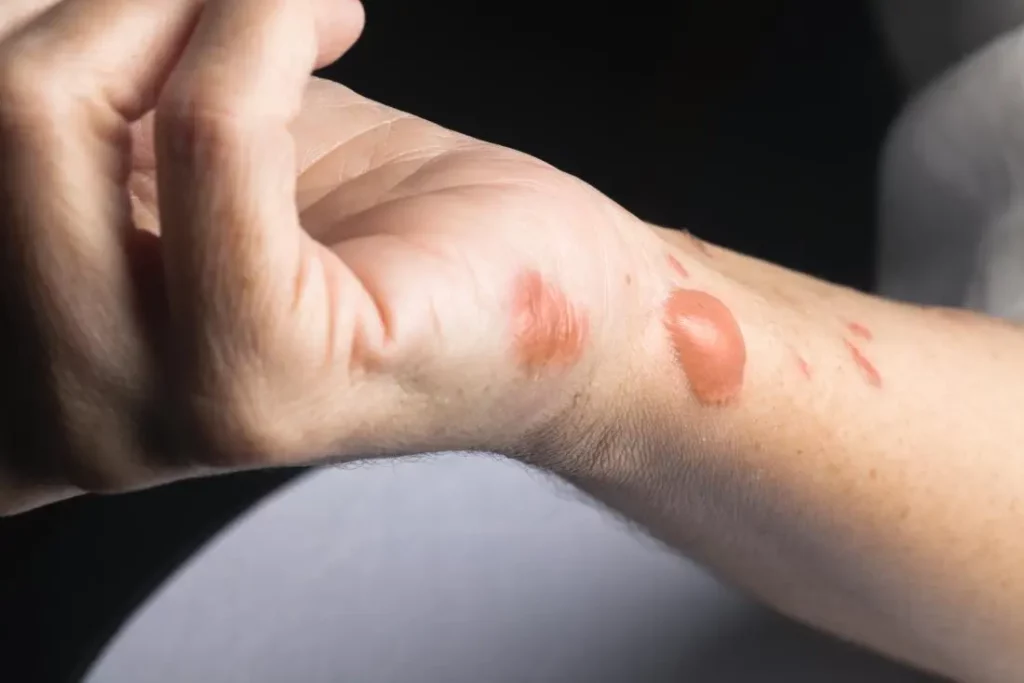Hand surgery is one of the top five surgeries performed under the reconstructive procedure. So I will be discussing this more in detail in this blog. As more and more people approach plastic surgery as a problem solver. It is really important to have knowledge about the kinds of treatments and procedures available which can help you make informed decisions .So in this article, I will be discussing hand surgery, its aftereffects, and things someone should know before signing up for surgery in detail. By the end of the blog, you will get a clear-cut understanding of how hand surgery can be helpful, the types of hand surgery available, and the average cost of the surgery. Do’s & Don’ts after the surgery. With that being discussed let’s address the elephant in the room
What is hand surgery?
It is hand reconstructive surgery that aims to restore the function of the hand and fingers to perform normally. But hand surgeons also aim to improve the appearance of the hand cosmetically.
Hand surgery may be done for many reasons, such as:
● Hand injuries

● The rheumatic disease which can damage the structure of the hand.

● Problems or defects of the hand that are present at birth, or congenital

● Infections of the hand

● Burn scars and so on

Some of the common types of hand surgery
● Skin grafts – These involve replacing or attaching skin to a part of the hand that has missing skin. This surgery is most often done for fingertip amputations or injuries.
● Trigger finger surgery – This procedure is used when flexor tendons in fingers(which helps to bend fingers to grip objects) develop bumps or nodules that prevent the tendons from sliding smoothly, which in turn block the smooth straightening of fingers making it stay in the bend position.
● Carpal tunnel surgery – It is one of the most common types of hand surgeries performed due to Carpal tunnel syndrome. This condition occurs when the tissue inside the Carpal tunnel swells and puts pressure on the median nerve that passes through the tunnel to the fingertip. The median nerve provides movement function to the forearm, wrist, and hand. So compression of the median nerve causes the blood flow to reduce causing a needle sensation in the hands, thumb weakness, and pain in the hands.
● Joint replacement – This particular type of surgery is performed in case of severe hand arthritis. Here an arthritis-affected joint is replaced with an artificial one. The artificial joint can be made of metal, plastic, silicon rubber, or your own body tissue.
● Replantation – This is a more complex type of surgery involving the reattachment of a finger, hand or any body part completely cut off from the body.
● Closed reduction and fixation – This procedure is used when there is a bone fracture on the hand or finger. It helps to realign the broken bone and hold it in the palace while it heals.
●Nerve repair – Usually done when there is nerve damage that causes a loss of feeling in the hands. If the nerve is cut it can be done by reattaching it to the other end of the nerve. Also, nerve grafting can be done where a damaged nerve is replaced by a nerve from other parts of the body.
Is there any risk associated with hand surgery?
When considering the risk, you may feel some difficulties after hand surgery and most of them are quite common following the surgery. So no need to worry. Here are some of the common and non-specific complications that may arise after hand surgery:
● Swelling – This is common after surgery. But if you feel any redness along with an increase in swelling, there is a chance of infection. In such a case you could contact your doctor and avoid treating yourself.
● Bleeding – It’s common that after the surgery you may experience slight bleeding from the wound and it will settle over time. But if there is steady bleeding you may require medical attention.
● Infection – There are chances that you may experience redness, swelling, pain, and pus around the stitches. It is mainly due to some infection on the skin surface. This could be easily settled with regular dressing and oral antibiotics. But if there is a deeper infection near the bones is rare and needs admission to the hospital for intravenous antibiotics or surgery if needed.
● Scarring – I won’t even call it a problem because as you know every surgery leaves a scar. Initially, a scar may thicken and will soften over time. If the scar marks worry you can go for cosmetic surgery to improve your appearance.
● Delayed wound healing – Sometimes the wound may take a little while to heal and this could be due to infection or the medical condition of the patient. If the person is diabetic the healing process takes time.
● Damage to adjacent structures – Some nerve vessels could be accidentally damaged during the operation. This is seen more commonly in operations that occur after a trauma.
● Cold tolerance – This is common in people who have undergone surgery on fingers, especially the following replantation. Replantation deals with the reattachment of a finger, or arm that has been completely cut off from a person’s body. Cold intolerance develops over the first three months following surgery and remains constant over the first 12 months. Here the person may show an unusual response to cold and may experience pain, color change, or stiffness in the fingers. This causes difficulty to work in a cold environment. So it is important to wear good quality gloves in a cold atmosphere.
As we discussed above you may face some difficulties following the surgery and these are common situations that follow most surgical procedures. At first, it may seem hard but eventually, you will get through it. One important thing to keep in mind is that, if you feel any kind of discomfort after the surgery, reach out to your hospital for help and never ever try to treat yourself. As you see it’s important to take care of the wound after surgery from infection and other complications to ensure a full recovery. There are some of Do’s and don’ts after hand surgery to be kept in mind.
What should someone do after the surgery?
In simple words, following a proper rehabilitation and recovery plan suggested by your doctor helps you get better soon. So what do these recovery procedures include? Let’s examine it
● You will be advised to rest your arm on a cushion while seated and hold your arm to your other shoulder while walking or standing. This is done to ensure you keep your hand above your heart level, which could help reduce swelling.
● Before you leave the hospital the hand therapist will provide you with a flexible plastic splint( to protect your hand). This ensures that the repaired tendons are not overstretched. You should wear the splint all the time for the first 3 to 6 weeks, later its usage can be restricted only at night if your therapist suggests. It is important to keep it dry so wearing a plastic cover over the hand would be better.
● You should follow the hand exercise recommended by your therapist to prevent repaired tendons from getting stuck to surrounding tissue.
● The person should keep his general health in check. For example, if the person is diabetic he should take extra effort to maintain a steady blood sugar level.
What does someone not do after hand surgery?
● Smoking and alcohol consumption should be avoided as it affects blood flow and slows the recovery process.
● Using the hand too much and early following the surgery. Like squeezing the toothpaste. It may seem funny but it is a common mistake most of them make.
● Not following the proper rehabilitation plan delays the recovery process.
● Keeping the other part that didn’t have the surgery still. If you had surgery at your thump make sure to move your wrist and other fingers daily to avoid stiffness in the joints. which could weaken the muscles.
I hope by now you got a better understanding of the things someone should follow for a fast recovery after hand surgery. Now it’s time to address the next question in your mind. How quickly can I resume my normal daily activities and return to work?
Simply, What is the recovery time after hand surgery?
Well, that depends on the type of injury and how complex it is. The repaired tendon usually takes 12 weeks to regain back to full strength and it may take up to 6 months to gain a full range of movement.
The general recovery phases include:
● You will be able to resume light activities like writing with a pen after 6 – 8 weeks.
● Will be able to resume medium activities like driving a car or lifting weights like doing shelf stacking after 8 -10 months.
● You will be able to start activities like going for building work after 10 -12 weeks or more.
● You should engage in sports activities only after 12-14 weeks post-surgery or even more.
These are some of the common recovery phases. Your hand surgeon will be able to give you more details of your estimated recovery time based on your health, type of surgery, and other factors. Even if you take more time than generally proposed, don’t worry you will be better soon. The most important thing is to follow the instructions given during the recovery period. I hope you got a clear picture of plastic hand surgery and its related matters. Now let’s look at the cost associated with these procedures.
Factors determining the cost of the surgery
- Type and intensity of the procedure – Different procedures have different types of challenges for the surgeon. Some are trickier and need more resources. For example, let’s take the. case of rhinoplasty(nose surgery). It can be done either by slightly reshaping the skin and cartilage or by intensive procedure, which requires full restructure of the bone. The former is cheaper than the latter. But which technique to choose depends on the situation.
- Cost of materials – Each surgery requires a different type of material which adds up to the total cost of the procedure.
- Anesthesia-related fees – Anesthesiologist fees are treated as separate charges. Cost also depends on whether it’s local or general anesthesia.
- Physical location – Surgery costs in urban areas will be usually higher than the rural areas.
- Medication and follow-up needs – The cost of surgery extends beyond the operation. It includes the cost of post-surgery medications, bandages, and other follow-ups.
- The experience of the surgeon – I have highlighted this point intentionally as this is the crucial requirement of any surgery. Whatever procedure it may be at last it’s the surgeon who does it. So it’s not ideal to compromise on surgeons if they charge higher fees. As a plastic surgeon gains more experience, he tends to produce better results. Then it’s justifiable for them to charge higher fees. So it is important to look for a well-experienced surgeon who has produced good results.
Hand surgery cost in India
With reference to the above-discussed factors, the cost of hand surgery in India ranges from Rs 2000 -Rs 3,00,000 or more if you choose to go to hospitals in top cities like Mumbai, Kolkata, and Bangalore under the supervision of the most experienced doctors. The cost of surgery depends on the condition the patient is in and cannot be rounded off in exact figures.
Dr Binoy P S is one of the leading specialist in the field and offers consultation and treatment for hand Surgery related condition at :
- Hand Surgery & Microsurgery Clinic ,
Department of Orthopedics and Rheumatology ,
Aster Medcity, Cochin , Kerala, India . - Hand Surgery & Microsurgery Unit
Department of Orthopedics,
St James Hospital, Chalakudy, Kerala, India . -0480 2710333 , 0480 271 0271
Conclusion
I hope through this blog I was able to address all your doubts regarding hand surgery and related subjects. I believe now you will be in a better position to make informed decisions. The field of hand surgery had progressed from the slightest cosmetic surgery to intensive reconstructive surgery, helping many people to get their lives back which they once lost. Technological advancement made plastic surgery more affordable and universal, which assisted people in redefining their appearance which helped them enhance their self-esteem. Today many types of hand surgeries are performed across the world but it is very important to have a clear-cut understanding of its procedure, factors that affect the cost and proper steps to be taken after the surgery for a speedy recovery is important for an informed decision to be made.

